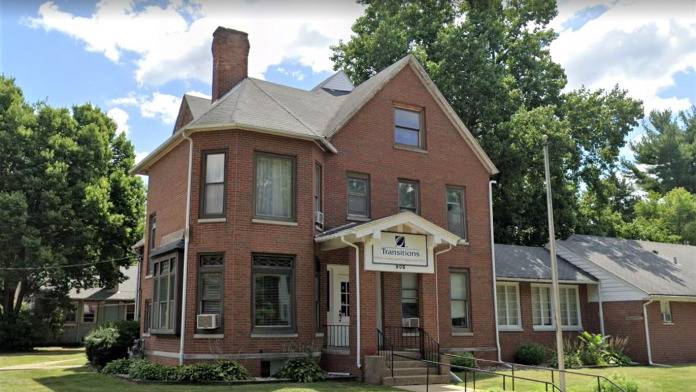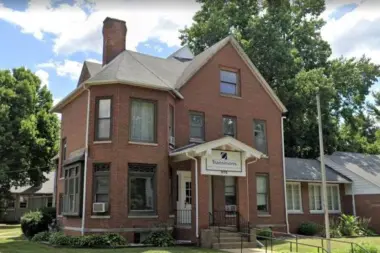About Transitions Mental Health – Services
Transitions Mental Health Services is a nonprofit, community based mental health organization located in Rock Island, Illinois. The staff treats clients with mental health and co-occurring substance use disorders (SUD).
They offer outpatient treatment services. Additionally, they help people through supported living and employment assistance services. The facility accepts private insurance, Medicaid and Medicare.
Dual Diagnosis Treatment in Rock Island
Rock Island is located on the Mississippi River. The riverfront area is home to Schwiebert Riverfront Park, which is two miles from the treatment center. The park offers art sculptures, scenic river views, a promenade, an observation shelter and a walking and jogging trail.
It’s a beautiful place for reflection while you’re engaged in a treatment program. The outpatient services include treatment for clients with a dual diagnosis of substance use and mental health issues. The services are for youth ages 5-18 and adults 18 and up, and the program includes group and individual therapy.
Notably, youths can receive customized treatment at their school as well as in the clinic setting.
Psychiatric services include medication management and psychiatric evaluations complement the therapeutic interventions. Clinicians use evidence based treatment modalities, such as cognitive behavioral and dialectical behavior therapies.
Community Integration Treatment Approach
The staff here takes a holistic approach to treatment. They integrate various services to ensure clients have everything they need to heal and live productive, independent lives. Clients get connected to community resources and support to enhance their stability and success.
They offer residential supported living programs tailored to each individual’s goals and needs. The program is transitional and helps clients develop the daily living skills necessary to achieve independent living.
Employment services help clients build resumes. The staff assists in job development, job searches, and offers on/off site job support. One reviewer described the facility as a lifesaver and said that the whole staff was incredibly supportive.
Latest Reviews
Rehab Score
Gallery


Accepted Insurance
Other Forms of Payment
Medicaid is a state based program that helps lower-income individuals and families pay for healthcare. Medicaid covers addiction treatment so those enrolled can use their coverage to pay for rehab. When a program accepts Medicaid the client often pays very little or nothing out of their own pocket.
Private insurance refers to any kind of healthcare coverage that isn't from the state or federal government. This includes individual and family plans offered by an employer or purchased from the Insurance Marketplace. Every plan will have different requirements and out of pocket costs so be sure to get the full details before you start treatment.
Self-pay involves paying for treatment out of your own pocket. You can use savings or credit, get a personal loan, or receive help from family and friends to fund your treatment. If you don't have insurance or your insurance plan doesn't cover a specific program, self-pay can help ensure you still get the care you need.
Financial aid can take many forms. Centers may have grants or scholarships available to clients who meet eligibility requirements. Programs that receive SAMHSA grants may have financial aid available for those who need treatment as well. Grants and scholarships can help you pai for treatment without having to repay.
Medicare is a federal program that provides health insurance for those 65 and older. It also serves people under 65 with chronic and disabling health challenges. To use Medicare for addiction treatment you need to find a program that accepts Medicare and is in network with your plan. Out of pocket costs and preauthorization requirements vary, so always check with your provider.
Addiction Treatments
Levels of Care
Outpatient Programs (OP) are for those seeking mental rehab or drug rehab, but who also stay at home every night. The main difference between outpatient treatment (OP) and intensive outpatient treatment (IOP) lies in the amount of hours the patient spends at the facility. Most of the time an outpatient program is designed for someone who has completed an inpatient stay and is looking to continue their growth in recovery. Outpatient is not meant to be the starting point, it is commonly referred to as aftercare.
Treatments
Many of those suffering from addiction also suffer from mental or emotional illnesses like schizophrenia, bipolar disorder, depression, or anxiety disorders. Rehab and other substance abuse facilities treating those with a dual diagnosis or co-occurring disorder administer psychiatric treatment to address the person's mental health issue in addition to drug and alcohol rehabilitation.
Mental health rehabs focus on helping individuals recover from mental illnesses like bipolar disorder, clinical depression, anxiety disorders, schizophrenia, and more. Mental health professionals at these facilities are trained to understand and treat mental health issues, both in individual and group settings.
Programs
Adult rehab programs include therapies tailored to each client's specific needs, goals, and recovery progress. They are tailored to the specific challenges adult clients may face, including family and work pressures and commitments. From inpatient and residential treatment to various levels of outpatient services, there are many options available. Some facilities also help adults work through co-occurring conditions, like anxiety, that can accompany addiction.
Young adulthood can be an exciting, yet difficult, time of transition. Individuals in their late teens to mid-20s face unique stressors related to school, jobs, families, and social circles, which can lead to a rise in substance use. Rehab centers with dedicated young adult programs will include activities and amenities that cater to this age group, with an emphasis on specialized counseling, peer socialization, and ongoing aftercare.
Clinical Services
Cognitive Behavioral Therapy (CBT) is a therapy modality that focuses on the relationship between one's thoughts, feelings, and behaviors. It is used to establish and allow for healthy responses to thoughts and feelings (instead of unhealthy responses, like using drugs or alcohol). CBT has been proven effective for recovering addicts of all kinds, and is used to strengthen a patient's own self-awareness and ability to self-regulate. CBT allows individuals to monitor their own emotional state, become more adept at communicating with others, and manage stress without needing to engage in substance abuse.
Group therapy is any therapeutic work that happens in a group (not one-on-one). There are a number of different group therapy modalities, including support groups, experiential therapy, psycho-education, and more. Group therapy involves treatment as well as processing interaction between group members.
In individual therapy, a patient meets one-on-one with a trained psychologist or counselor. Therapy is a pivotal part of effective substance abuse treatment, as it often covers root causes of addiction, including challenges faced by the patient in their social, family, and work/school life.
Trauma therapy addresses traumatic incidents from a client's past that are likely affecting their present-day experience. Trauma is often one of the primary triggers and potential causes of addiction, and can stem from child sexual abuse, domestic violence, having a parent with a mental illness, losing one or both parents at a young age, teenage or adult sexual assault, or any number of other factors. The purpose of trauma therapy is to allow a patient to process trauma and move through and past it, with the help of trained and compassionate mental health professionals.
Staff
Anne McNelis,, MSW, LCSW, LPHA
Co-CEO & Clinical Director
Kristy Rodgers, CPA
Co-CEO & CFO
Brandon Borkovec, MSW, QMHP
Director of Service Compliance
Courtney Stenzel, BS, MHP
Director of Community Integration
Sarah Sirna, BA, MHP
Director of Community Outreach & Employment Services
David Levin
Board President
Lawrence Davis
Board VP
Gene Krismanits
Board Treasurer
Contact Information
805 19th street
Rock Island, IL 61201




